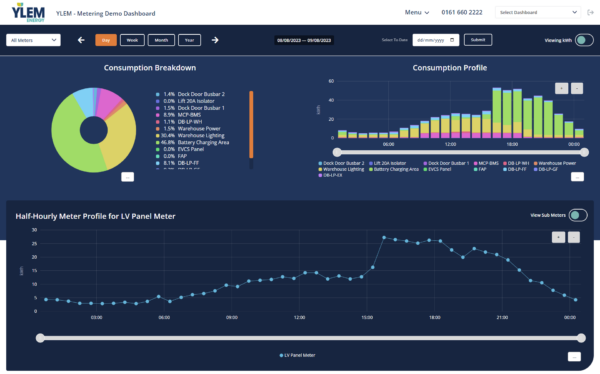In today’s competitive market, businesses are constantly seeking innovative ways to enhance efficiency, reduce costs, and promote sustainability. The integration of Building Energy Management Systems (BEMS) stands out as a pivotal strategy, particularly for companies looking to leverage energy data for informed decision-making.
The Strategic Role of Energy Data
Energy data collected from a Building Energy Management System can transform how businesses manage their operational energy use. This data provides detailed insights into energy consumption patterns, identifies inefficiencies, and highlights potential areas for cost reduction and energy conservation. For businesses housed in energy-intensive facilities, such data is indispensable for optimizing energy usage and reducing environmental impact.
Decision-Making Enhanced by Real-Time Data
Real-time energy monitoring offered by BEMS allows businesses to make proactive adjustments to their energy consumption. This capability not only helps in managing energy costs more effectively but also supports operational adjustments in response to varying energy demands throughout the business cycle. This level of control and flexibility is crucial in maintaining efficiency and resilience against energy price volatility.
Predictive Analytics for Future Planning
Advanced analytics tools that process energy data can provide predictive insights, enabling businesses to forecast future energy needs and costs. This foresight aids in better budgeting and strategic planning, ensuring that energy procurement and consumption align with business goals and market conditions. Furthermore, predictive maintenance derived from energy analytics can prevent costly downtimes and enhance the lifespan of critical infrastructure.
Contributing to Sustainability Goals
Beyond cost management, energy data from BEMS supports broader sustainability objectives. Companies can track their progress towards energy reduction targets and regulatory compliance, showcasing their commitment to environmental stewardship. This not only helps in meeting legal requirements but also boosts corporate reputation, aligning with consumer and stakeholder expectations for sustainable practices.
Integrating Renewable Energy Solutions
With a strong focus on advancing towards net-zero targets, businesses can use energy data to better integrate renewable energy solutions like solar PV systems or battery storage. This integration can be strategically managed through insights derived from energy data, optimizing the timing and scale of renewable energy usage to maximize benefits and return on investment.
How can energy data help my business?
For businesses equipped with Building Energy Management Systems, the comprehensive utilization of energy data offers a transformative potential. From optimizing day-to-day operations to planning long-term sustainability strategies, energy data is a cornerstone in navigating the complexities of modern energy management and achieving business excellence.
By leveraging such sophisticated data-driven insights, businesses can not only anticipate and react to changes within the energy sector but also position themselves as leaders in energy efficiency and sustainability.
For further exploration of energy solutions and data management, see how YLEM Energy Optimise can help your business incorporate various innovative energy solutions tailored to modern business needs.





